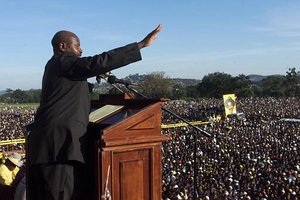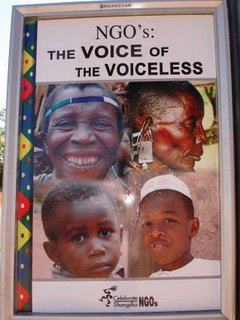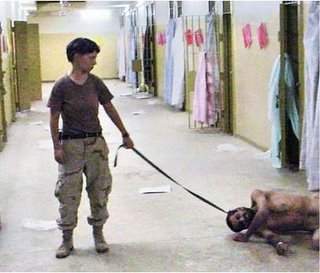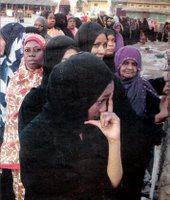BBC's Fergal Keane has written an intresting analysis of theUgandan President Museveni as an example of a larger African-Western dilemma. Find the complete article right here.
It describes the problem of the Western naive belief in "the new African leader", and its dissappointment everytime it goes wrong, as in Zimbabwe, Ethiopia and Uganda.
Below is an extract:
"Global business associates
For many years now President Museveni has been touted as one of a new breed of African leaders.
Of course that was said once about Robert Mugabe, too.
Political leaders in the West, and many in the media, have been so desperate to believe in a new Africa, so desperate they have fallen for every leader who has talked the language of pluralism and respect for human rights.
They especially liked these men if they followed World Bank and IMF prescribed solutions to their country's economic problems.
They were - from Mugabe in the early 1980s to President Museveni and the prime minister of Ethiopia now - the kind of people one could do business with.
And so eyes and ears were closed to the nastiness practised by the security agencies of these new African leaders.
Western naivety
The West is being defeated by the politics of wishful thinking in Africa.
After the decades of blood and famine, Western leaders wanted an end to the misery and the constant tugging at the post-colonial conscience.
Many of our leaders acted from genuinely high principles.
But I also think there is a patronising expectation that these new Africans can be managed and moulded in the same way a previous Western generation had manipulated African leaders during the Cold War.
I am afraid the manipulation has worked the other way.
They have seen the West coming with a desperate will for Africa to succeed, hands wringing over past failures and abandonments, eyes blind and ears blocked.
Now that the subtle repression of such states has become more publicly brutal - the locking up of the opposition leader in Uganda, the jailing of scores of opposition supporters in Ethiopia - countries like Britain appear shocked.
They have moved to cut aid.
It is all much, much too late."
 Since the very beginning of the war on terror and more recently the counter-insurgency campaign in
Since the very beginning of the war on terror and more recently the counter-insurgency campaign in 










